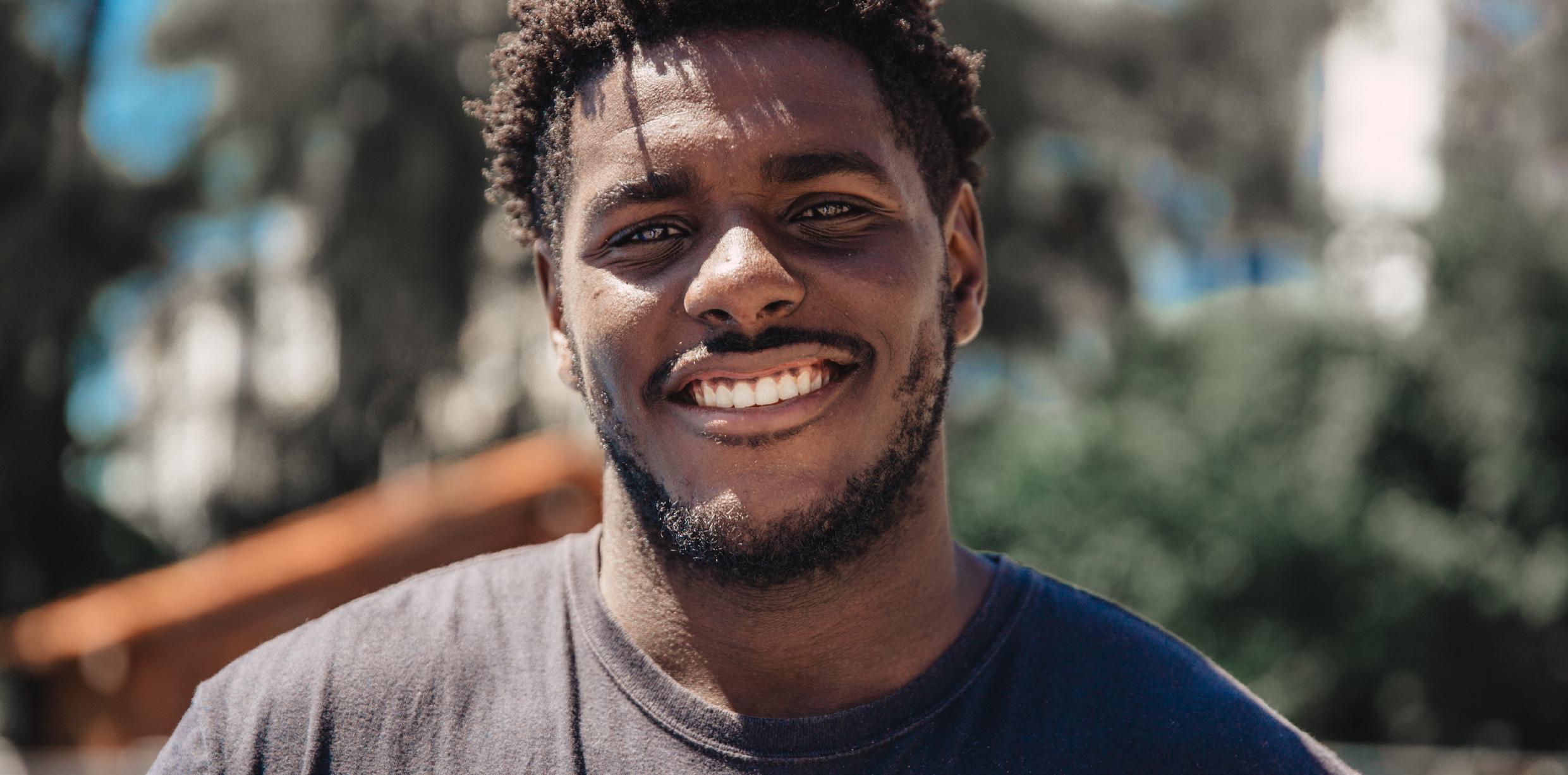On Being a Dad

Making the most out of fatherhood

| 1
Authors
David Tully, Dr Jamie Lee, Patricia Coppola, Grant Pearson and Tonia Keating, Relationships Australia South Australia Ltd.
Acknowledgements
Relationships Australia South Australia receives funding from the Australian and State Governments and other agencies. We gratefully acknowledge this support which assists us to provide relationships services.
Publishing and copyright information
© Relationships Australia South Australia Ltd. This work is copyright. You may download, display, print and reproduce this material in unaltered form only (retaining this notice) for your personal, non-commercial use or use within your organisation. All rights are reserved. Requests and enquiries concerning reproduction rights should be addressed to:
communications@rasa.org.au www.rasa.org.au
First Edition, January 2020
Contents 1. Introduction 2. Dads in Theory 3. Dads Getting Their Hands Dirty 4. Dads With Tears in Their Eyes 5. Dads Getting Hot Under the Collar 6. Dads With Too Much Time on Their Hands 7. Dads With Not Enough Time on Their Hands 8. Dads With Boys 9. Dads With Girls 10. Dads With Instant Families 11. Teenager Taxi Driver 12. Dads Leaving Their Mark 3 4 6 8 10 12 14 16 18 20 22 24
1. Introduction
The most important part of being a Dad is that your kids know you love them, and that they come first. Ultimately, you need to find your own way to make sure this happens.
What being a Dad means has always been subject to change - as kids grow and develop, so does the role of being a Dad. Each man will bring his own personal style and approach to

fatherhood, based on his own background and history.
This booklet has been developed because we have learned, through talking to men, that many of you want to know how other Dads have gone about learning ‘Dad stuff’, and want to learn more about being a great parent.
Challenges of being a Dad
The moment that you become a Dad can be one full of pride and joy. Accompanying that can be feelings of worry and wondering how you will cope. Thoughts of changing dirty nappies, getting no sleep, and figuring out how to install the car seat can make anyone nervous. And this is just the start.
We know that as men look for answers, too often they do it alone. Working out the best way to be a Dad and feeling confident in this role is an ongoing conversation. However, we know that for most men, finding ways to have this conversation isn’t easy. Finding ways to learn and develop is the best way to honour the
important role of being a Dad, and to be the best parents we can be.
It is easy to feel weighed down by pressure, which can get in the way of feeling confident to develop your own style of being a Dad.
That’s why we created this booklet – not simply to tell you how to do it, but to provide a foundation, to build a network of ideas for Dads so you can find your own ‘Being-a-Dad’ path. We know Dads are diverse and that’s a great thing. We want to celebrate doing ‘Being-aDad’ differently.
We want this booklet to support you, regardless of your parenting situation - whether it’s dealing with toddlers, young people, divorce, separation, or adoption, we want this to be useful for you. No matter what your cultural background, your sexuality, your religion, or how much money you have, it is important you find your own path to becoming a Dad in your world.
We hope this booklet helps you on your own path to being a Dad, your way, for your family.
| 3
2. Dads in Theory
Expecting or planning to be a Dad
The mechanics of ‘baby making’ haven’t changed much over the millennia, but science and technology have. Things like IVF, an industry of vitamin supplements, and antenatal care have transformed pregnancy and attitudes to pregnancy. Societal changes also mean that on average, Dads are now older when they have kids, they are having fewer kids, and more often they are having kids after separation or divorce.
It is important to remember you don’t need to be perfect as you become a father. You will
never be completely ‘ready’, just more ready than you were the day before.

And get ready to let go of some things that you may have planned to do (like climb Mount Everest), things you never had (a red Lamborghini), and things you shouldn’t have had (a car with bald tyres).
Remember, late in pregnancy, your baby will hear everything you do that’s loud. So make your choice – will it be hearing loud music that you love or nasty arguments about money and housework?
People don’t always talk about miscarriage but it happens more than you may realise. If it happens to you, it can feel devastating. If it happens, be easy on yourself, and on your partner, and remember take care of each other.
Fact | 4
5 point Dad check-up
1. Look after yourself. It’s not just Mum’s health during pregnancy that makes a difference. Before conception, your health decisions (like smoking or drinking) are crucial too. To be in the best shape to look after your partner, you need to look after yourself. Time for last drinks?
2. Er, congratulations? How did you feel (or will you feel) to hear about being a Dad? The further you are from feeling ‘‘delighted’,’ the more work you may need to do to prepare for fatherhood – starting now.

3. Plan A. What are your thoughts on birth? Hospital? Home? Public? Private? Water? Drugs? Lots of people at the birth? It’s important you support your partner and let her know your thoughts. But remember, your decision may not be the final one.
4. Plan B. Birthing doesn’t always go to plan, so think well in advance and discuss other options for birthing with your partner. It is important to also think about who supports you emotionally if things don’t go to plan and your partner can’t be there for you.
5. Plans C-Z. What are your thoughts on the many other ways men become Dads? Fostering? Adoption? Father figure? Social father? Uncle? Is this something you are prepared to look into if fathering is not possible for whatever reason?
More information
Children | www.raisingchildren.net.au Plenty of tips and resources on child development from bump to bub to big kid, especially kids with special needs. Beyond Blue | www.beyondblue.org.au Information and advice on wellbeing and how to deal with mental health
| www.dadvice.org.au Videos,
Raising
struggles. Dadvice from Beyond Blue
life stories and comedy moments for new dads.
| 5
3. Dads Getting Their Hands Dirty
New Dads
Babies poo, they wee, they vomit, and one day you may have all three on you at the once. This parenting milestone is being ‘achieved’ by more Dads nowadays than ever before. But it hasn’t always been like this. The traditional ‘breadwinner’ Dad would have left baby care for someone else to deal with – usually Mum –while Dad worked.

Now, Dads typically expect to be there for the whole baby journey, not just the start. And their partners often expect this too. This can make for uncomfortable territory unless you see eyeto-eye on this. Good two-way communication is absolutely essential. Relationships can come under considerable strain after a baby – and not just intimate relationships. A peaceful home with a relaxed Dad means it’s easier for you to bond with your child. Not just the fun stuff, but also the calm, quiet times as a family and the
busy practical times of helping with feeding, dinner, bathing or changing dirty nappies.
You need to be a grown-up and know what being a responsible Dad means for you and your partner. Young children won’t remember you changing their nappies. They won’t remember any of the times you picked them up when they cried as a bub. But they will feel it in their hearts – and you’ll see it in their eyes – when you care for them sensitively, consistently, and respectfully. All of these interactions create a deep emotional connection between you and your baby.
And remember - there will be days where nothing can stop your child crying. On those days, your job is just to sit with them while they cry and let them know that you’re there. Easy to say, hard to do - but that’s what it takes to be a great Dad.
Post-natal depression affects Dads too. If you’ve been stuck in a really low mood for weeks or are struggling with dark thoughts then follow the links below. Do it, Dad.
| 6
Fact
5 point Dad check-up
1. Nappy time. Are you changing nappies? Did your father change yours? What are you doing differently, or the same, and why?

2. Decisions, decisions. How are you sharing the jobs of raising a newborn, or planning to do this? How are these decisions being made?
3. Show me the money. Have you checked your eligibility for Government benefits? You may be eligible if you stay at home during the early days. Are there any employer benefits available?
4. The jab. What do you as a Dad think about vaccinations for babies? Who else knows how you feel about this, and other health decisions?
5. Protection time. Your other relationships are important too - your mates, your other children, your parents. What are you doing to look after these connections?
More information
SMS4dads | www.sms4dads.com.au
A text messaging service which aims to keep in touch with dads through their smart phone before and after the birth of their baby. | 7
4. Dads With Tears in Their Eyes
Times of adversity
Often we start with an idea of what a being a Dad will mean. This often involves images of someone who can always cope by themselves (“real men don’t ask for help”), someone who always has the answers (“just talk louder and people will believe you”) and fear of being seen as weak (“no, it didn’t hurt”).
This is fine for characters in movies and comic books, but not for real life.
Life will sometimes send us things that can be really difficult to deal with. This might include relationship issues, racism and discrimination, ill health, grief and loss, seeing your kids hurting or struggling with your own emotional and mental wellbeing.
Fact
For some men, watching their children at different stages may trigger unresolved issues from their own childhood.
Trying to do it alone when you are feeling down may increase the risk of some of these things becoming harder to deal with. It can also increase the risk of depression or anxiety taking hold.
Being a Dad means you have to be open to learning something new each day as your kids develop. The best way to learn is to talk to others, so you and your kids can grow together.
Depression is not just about feeling sad - it can also be about feeling out of control or powerless to handle emotions, or unable to see a way out. It can affect anyone and can be caused by any number of things that go wrong in our lives.

| 8
5 point Dad check-up
1. Express yourself. Do you struggle to express how you really feel, particularly if those feelings reveal any vulnerability, such as hurt, sadness, shame?
2. Ideal man. Does the idea of what you think a man should be, compared with the way your life is, make you feel down or like a failure?
3. Balancing act. Is it hard for you to find a good balance between commitment to work, to other commitments and to your family?
4. Emotional overload. Does trying to deal with emotions have you withdrawing from others or using alcohol or other drugs to cope?
5. Heading for trouble. Have other people said they are worried about you and you’re not sure what to do?
More information
MensLine | www.mensline.org.au
A wide variety of information and other men’s stories. Sections on relationships and well being.

Living Well | www.livingwell.org.au
A resource providing information and support to men who have been sexually abused, their partners and family. We know that at least one in six men have been subjected to sexual abuse as a child or young person.
Support For Fathers | www.supportforfathers.com.au
A range of resources for Dads and their partners focussing on the role of Dads, the relationship between Dad and their partner and the bond between Dad and his child.
| 9
5. Dads Getting Hot Under the Collar
Conflict
Being a Dad can be hard. Family and kids don’t come with an easy-to-follow plan. All relationships have ups and downs and even disagreements, but it’s different if people in your family start to feel scared, or worried about how you are responding.
Many men struggle with how to deal with some of the situations that being a Dad brings up. You can end up being angry in ways that can scare kids or your partner.

Often this leads to acting in ways that you are not proud of and that go against being the Dad that you want to be. You might not have intended to behave in certain ways, however, it’s your actions that count for your kids.
Fact
It’s easy to dismiss actions by saying things like “I just dropped my bundle” or “I sometimes just snap” or “it’s no big deal.” But often your kids and others around you see this more than you realise, they feel the impact, they see a pattern.
It can be hard to get help but it’s important to think about what sort of memories you want your kids to have of you. Do you want them to remember an angry man or a Dad who could handle themselves and loved them no matter how tough things got?
It takes true strength to be honest and to push aside any shame that you might feel in reaching out to change. If violence in relationships is ignored, things keep getting worse. Sooner or later it happens again, and again, and again.
You may feel your behaviour can’t be changed, especially when you are in the middle of a crisis. Often men get stuck in “this is just the way I am.” Overcoming the problem is not easy, but with the right support, you can start to do things differently. You can change.
| 10
5 point Dad check-up
1. Let it go. Do you sometimes have a hard time letting go of angry thoughts about your children or your children’s mother or other people?
2. Fired up. Do you act in ways that you don’t feel are right and that you feel ashamed of, once you’ve calmed down?
3. Noticing what matters. An important aspect of preventing hurtful behaviour is being able to see it coming – or rather notice it coming. This is not always easy but it does give you the chance to respond to it differently. Do you see these behaviours coming?
4. Mirror, Mirror. Are you worried about how your behaviour is affecting your children or have you seen your own kids behaving like you, in ways you don’t like?
5. Taking charge. Are you able to take responsibility when you act in ways you are not proud of, or do you get hooked into blaming others or trying to play it down or making excuses for it?
More information
MensLine | www.mensline.org.au
A wide variety of information and other men’s stories. Sections on changing abusive behaviours and dealing with anger.

Not To Violence | www.ntv.org.au
Website dedicated to helping men change who are using violence in their relationships to change.
Relationships Australia-Family Violence Prevention | relationships.org.au/document/domestic-and-family-violence-controlling-andviolent-relationships/
A website that can link you to services, groups and information.
| 11
6. Dads With Too Much Time on Their Hands
Away from the kids
Too much time on your hands? Sometimes men find they’re not doing enough ‘Dad time’, and sometimes it’s not through choice. It may be because of separation, because you’re working away, on deployment, or because you have to keep away for legal or criminal justice reasons. This can be hard because there’s no ‘off switch’ in your head once you’re a Dad.
If you’ve got too much time on your hands, there are some things that can make it easier. Remember you’ve got experience from living your life before kids – you can remember or re-engage with the interests and activities that were in your life then. Emotional support is a phone call, a few mouse clicks, or a conversation away. Don’t let pride be the only reason you don’t seek it.
The full details for why you’ve got too much time, even if it isn’t your choice, might help you identify the things you need to take responsibility for in order to make changes.

This is important because your kids might not understand these things, so it could be harder still for them. They may still be struggling to adjust to Dad being away. Saying to your kids,
“I’m sorry about the way things are because I know it’s hard for you” is so important.
Phone calls or FaceTime are great if you can do a little and often. Try to lead the conversation with energy and fun (maybe read a book or tell a funny story). Know that, realistically, full attention from kids lasts roughly one minute for each year of their age – any more and it gets boring for them.
When it’s time to see them again, you may feel like bundling up a weeks worth of things to say, do, show, and eat, and then do it all at once, the moment you see them. Kids will probably find this overwhelming. It may turn the glorious reunion into tears before bedtime. So slow down – pace yourself.
Then at the end, plan to send them off with a smile, so that they’re happy when they leave you, but also sad to say goodbye (a little). It’s important for your children to leave with happy feelings of the time they spent with you, rather than be remembering or feeling responsible for any sadness or upset you may have felt when saying goodbye.
Fact
Sadly, statistics show depression is a mental health risk for Dads after separation. Some men get depressed and may experience suicidal thoughts. Don’t become a statistic – get help for yourself to help your kids keep their Dad. | 12
5 point Dad check-up
1. Go practical. Think about nuts and bolts for a minute - are you sharing medical records, school reports, sports fixtures or club dates, etc? Do you know the apps that can help you with that?
2. Baby love. Kids of all ages love happy stories about themselves as babies. When you see them (and through gritted teeth if needed), think of happy stories you can tell them about family life when they were a baby.
3. A little and often. What can you do on a daily basis to show you’re thinking of them over time? If you’re able to, can you send a postcard per day for a week? Or send photo messages of a growing Lego model? Or building a trampoline?
4. Shared what? Do you know the difference between shared care and shared parental responsibility? You can be an influence on your kids’ lives even if you don’t see them.
5. What next? If you’re unhappy with how things are, have you tried mediation or other solutions?
More information
Beyond Blue | www.beyondblue.org.au
Information and advice on wellbeing and how to deal with mental health struggles.
MensLine | www.mensline.org.au
Provides 24-hour bloke-to-bloke support either online or by phone.

The Fathering Project | www.thefatheringproject.org
Good tips and advice from some clever clogs at the University of WA.
| 13
7. Dads With Not Enough Time on Their Hands
Sole parenting
There can be many reasons why you become a single parent and sometimes it can happen without any warning. It can often be a sort of bereavement when the life you used to know just vanishes. Single Dads can be widowed, divorced or bringing up families because their partner is unwell and unable to share in the parenting.
Whatever the reason, it can be overwhelming when you find yourself juggling parenting on your own. In society, we see more women as single carers and often single Dads can find it difficult to combine work and single

parenthood. Being the only person to make decisions, being a friend to your child and getting involved in many activities with your children is a big job.
You may need to renegotiate your working hours to create a suitable schedule to balance your busy life. Being a single parent can mean that life is very hectic and results in added pressure, stress and fatigue. As a single parent bringing up a family on your own, you will face many challenges but you will also learn things you never imagined.
“Being a great father is like shaving. No matter how good you shaved today, you have to do it again tomorrow.”
| 14
–
Reed Markham (Author)
5 point Dad check-up
1. Love conquers all. Show them you love them. Remember to praise your children. These changes have been a big adjustment for them too. Set time aside to play, read or just spend time together.
2. Create structure. Schedule daily routines and tasks. Get your children involved in the decisions you make that affect them. Explain family rules and expectations such as speaking respectfully. Provide your children with consistent discipline but feel comfortable in discussing anything they may like to change.
3. Build your support team! Research good childcare providers who can teach and provide a safe environment for your children. Find a reliable baby sitter (don’t necessarily expect your older children to do this). Feel comfortable in asking good friends or family to help with babysitting. Lean on others by asking friends, neighbours or family to help with carpooling, sharing sports travel and having play dates. Always remember to reciprocate.
4. Self-care. Always take care of yourself when you do not have that second parent to share your parenting. Make sure to take time out for physical activity, eat well and get enough sleep. Arrange time to do things with your friends. You might enjoy joining a single parent support group. Be kind to yourself, have a ‘time-out’ by booking a babysitter.
5. Being human. It is ok for your children to see that some days can be hard but always reassure them that things are not always like this and that you love them. Do not put too much pressure on your children and expect them to behave like ‘adults’. No matter how challenging it gets, always know there is support for you and your family. Try to keep a sense of humour and have fun!
More information
Raising Children | www.raisingchildren.net.au
This website is a good resource in supporting single parent families.
Dads In Distress | www.parentsbeyondbreakup.com/dids
Covers many topics around sole parenting for Dads.

| 15
8. Dads With Boys
Sons
Many adult men report that they either wanted to grow up to be “just like my Dad” or they wanted to be exactly the opposite of their father. Without even realising it, fathers teach their sons what it means to be a man in this world, a role that has changed dramatically over the last few generations.
In previous generations many boys grew up craving the attention and love of their father, but the tide is turning. Fathers in today’s society
are more involved in their children’s lives from the very beginning, and with excellent outcomes.
We know that boys who feel that their father’s love is consistent, and whose father shows them that love, have better emotional, physical and intellectual growth. A Dad’s role is a very influential factor in a boy’s emotional health from the very beginning. You are your son’s roadmap into adulthood.

“Every father should remember that one day his son will follow his example instead of his advice.”
– Charles F Kettering (American inventor)
| 16
5 point Dad check-up
1. Be the role model. Treat your son with the respect you want him to show others. How he sees you treat others will stay with him for the rest of his days. You hold such an influential place.
2. Teach compassion. There remains a social myth that men don’t get emotional, that ‘real men’ don’t express their feelings. Free your son from that lie by demonstrating compassion and empathy. Show compassion for others, express kindness to those in less fortunate situations, respond with patience and love to family and friends. Through these acts you will teach your son more compassion than any other role model.
3. Talk with your son. Share secrets, ask questions, share dreams, hopes, concerns. Then listen! Let your son tell you about girls, boys, friends, school… anything, but be careful not to lecture or to be the expert. Let the lines of communication between the two of you open up and make this a habit. Do it often.
4. Walk like a man. Teach your son to respect and stand up for himself without being aggressive. Learning how to do this is a powerful gift to give your son. Gaining respect from others does not have to be done through fighting, fists or intimidation. Teach your son that sometimes it is better to walk away.
5. Play time. Be ridiculous together – show your son that sometimes it is perfectly alright to be silly and play around. Play, play, play, at every age. The type of play may change from Bob the Builder to Play Station, but play with your son, laugh, get ridiculous and let him learn that there are moments when that is healthy and good.
More information
Understanding Boys | www.understandingboys.com.au/ Tips and strategies for raising boys that takes into consideration each stage of your son’s development.
The Fathering Project | www.thefatheringproject.org/about-us
A website that inspires and helps equip dads to be engaged with their kids.

| 17
9. Dads With Girls
Daughters
Things have probably changed from when your sisters, female cousins and friends were growing up.
As her Dad, you are often the primary male role model in a young girl’s life and you will play an important part in the development of her selfesteem. This will have a significant influence on the type of person she becomes and the relationships she has.

The relationship between Dads and daughters can be unique so don’t be afraid
of your differences - embrace them! Daughters look up to their Dads and that is why it is important to form a bond early, and then maintain and strengthen this throughout her childhood and adolescent years. Don’t forget to have fun along the way!
Fact | 18
Bringing up girls may seem a bit foreign to some Dads but remember you can form a wonderful bond which will last a lifetime.
5 point Dad check-up
1. More than a pretty face. Tell her great things about her personality – don’t focus on telling her she is pretty. She will really listen to you and it is essential that you tell her that what is on the inside is important.
2. A woman’s worth. Treat her Mum, and all women, with courtesy and respect. Your daughter will be watching your relationships with other females in her life, which could influence her future relationship choices. It is important to show her that you value and respect women if you want her to value herself and engage in relationships in which she is respected.
3. Father figure. As her Dad, you can be a strong influence in your daughter’s life, and help shape her self-esteem, self-image, confidence and opinions for her future.
4. Build her self-esteem. Believe in her and her confidence will rise. Ask her about school, sport, friends and all her other interests and be part of them. Listen to her music, paint her nails, dress up as a princess while she dresses up as a pirate! Teach her that things like car maintenance, using a fuse box and turning off water at the mains is not ‘a man’s job’. She can do this as well as anyone.
5. Ask her opinions. Show her you are interested in her thoughts, values and philosophies. Share in her wisdom and learn from her. Do not distance yourself from her when she commences adolescence and her body changes. This is a time where she may become moody and not want anything to do with you. Continue to focus on that trusting relationship you have built and support her while she navigates life and discovers what type of person she wants to be.
More information
Raising Children | www.raisingchildren.net.au
A really informative website which supports Dads on how to bond with their children.
Dads Online | www.dadsonline.com.au
Dads Online is dedicated to providing relevant information which is important to Dads.
Fathers Raising Daughters
The Father’s Guide to the Female Mind-Field. A book by Nigel Latta
Raising Girls in the 21st century
A book by Steve Biddulph to help your daughter grow up wise, warm and strong.

| 19
10. Dads With Instant Families
Stepdads
Becoming a stepdad is becoming a Dad in a real hurry. One minute you’re single (or a single parent) and the next you are surrounded by children. Not only are you committing to your relationship with your new partner, but you are also making a commitment to your partner’s children.
You don’t always get a chance to slowly get used to your new role, and more than that
you don’t often get a new baby to bond with. (Rather, you get older childrenwho have already developed ideas and beliefs that have come from their own distinct experiences and that might be very different to your own). Navigating this space can be challenging and it takes time and patience to walk that road and create a blended family.
It can be hard for kids to adapt to all the changes that stepfamilies can bring and it can take time for them to adjust to having a new person living in their home. Remember, just like you, they are getting to know a new way of being a family.

| 20
Fact
5 point Stepdad check-up
1. Who’s the boss? Recognise early on that while your love might have no bounds, your authority does. If the biological parent is absent for a time and you are left in charge, the children are more likely to accept your authority if it has been clearly communicated that you are in charge while their parent is not there.
2. Baby steps. Be a Dad but don’t make the kids call you Dad. Bonds take a long time to develop so let go of any expectations that your feelings for your stepchildren will be the same as for your own children, or that the children will feel for you the same way they do about their biological Dad.
3. Follow the leader. Take your cues from your partner, the biological parent. Try to clearly support them in their parenting and be sure to have discussions or disagreements as a couple in private.
4. Easy does it. It is best to separate your self-esteem from what you often perceive are your stepchildren’s negative perceptions of you. Instead attempt to be there as a positive role model and in accordance with your own values.
5. Let love grow. Share yourself and your interests with your stepchildren. Focus on building a relationship with your stepchildren within your own clear self-care boundaries – show interest, acceptance and caring.
More information
Stepfamilies Australia | www.stepfamily.org.au
Parenting help and tips, plus access to resources.
Better Health Channel | www.betterhealth.vic.gov.au/health/healthyliving/stepfamilies
Some simple take-home information on the common challenges experienced by stepfamilies.
Raising Children |
www.raisingchildren.net.au/blended_families/blended_and_stepfamilies.html
Tips and articles to help you navigate stepfamily experiences.
Support For Fathers | www.supportforfathers.com.au
A range of resources for dads and their partners focussing onthe role of dads, the relationship between dad and their partner and the bond between dad and his child.

| 21
11. Teenager Taxi Driver
Teenagers
Kids grow up fast. Adjusting your parenting to allow your child to develop into adulthood takes reflection and thought. Managing the teenage years can be tough, but with a bit of ground work, they can be just as enjoyable as the other years. Understanding each other’s needs while maintaining a healthy relationship is key.

How restrictive or lenient you are depends on their age and what they want to do. It’s important to be aware of how and why you are making your decisions. It can be tempting to simply keep doing the same thing while your teenager is wanting more freedom. However, negotiating the boundaries to allow your child to safely learn how to be an adult needs to fit with their development - don’t treat them like they’re five when they’re fifteen!
Fact
Talking to your partner, family and other parents can help you stand back and plot your course. Consider doing some research on what professionals are saying. The relationship you have built while they were young will influence the one you have in their teens.
Spending time with your teenager allows you to understand their world and build trust. Even though your teenager will be exploring their independence and may seem to dismiss your thoughts and concerns, you will remain their greatest influence. Listening, understanding and acknowledging your teenager’s thoughts lets them know you care and are willing to reach agreements. You may make decisions they don’t like, but how you talk to them may help them accept those decisions more easily.
You may feel you need to be the ‘tough one’ to keep your child safe. But conflict with your teenage child can often lead to them rebelling. They need to learn things in life themselves. Maintaining an alliance with your teenager often supports reasonable thinking. Your child needs to explore how to be an adult over time. Be clear about your rules, ensure they are reasonable and keep trust strong between you.
| 22
5 point Dad check-up
1. Check yourself. How are you being a positive role model?
2. Staying close. How are you maintaining connection and a loving relationship?
3. Holding the reins. We all need boundaries throughout our life. How do you set boundaries for them now? How and when will they change?
4. Learner Drivers. How are you managing your fears versus your trust of your teenager? How will you listen to them and negotiate moving the boundaries?
5. Patch-up job. If trust is damaged, how will that be repaired? How can you set appropriate consequences, rather than punishment?
More information
Parenting Teens | www.childdevelopmentinfo.com/ages-stages/teenageradolescent-development-parenting
A website dedicated to providing information around parenting children through the years.
Mayo Clinic Parenting Tips | www.mayoclinic.org/healthy-lifestyle/tween-andteen-health/basics/tween-and-teen-health/hlv-20049436
Information and resources for parenting tweens and teens.
Support For Fathers | www.supportforfathers.com.au
A range of resources for dads and their partners focussing onthe role of dads, the relationship between dad and their partner and the bond between dad and his child.

| 23
12. Dads Leaving Their Mark
Your legacy
We all have hopes about the parent we want to be. Many Dads talk about how their plans for being a parent were very different to how life actually turned out. Maybe you’re doing great, doing ok or struggling with your parenting. We all have ways we can improve and our children’s wellbeing is a great reason to be the best we can be. Taking a learning approach to life helps us to get past being defensive. It is never too late to change if you are open to trying.

So, if your child was to write how they see you as a parent, what would they write? Is their reality of you what you would have hoped?
The legacy you leave as a Dad all depends on the Dad you are being right now. Your thoughts and actions are your responsibility and in your control. There are lots of things that can get in the way of being the Dad that you want to be and that your children need. Your partner, children, family and friends may have ideas about things they have noticed that may need
addressing. Being open and listening will often help you to create positive change.
Quality time spent with children matters, so managing the competing demands of work and life is important. There is often time in our day that can be used more efficiently, to make time to meet your own needs and those of your children.
There are many transition points in parenting including baby years, childhood, teenage years and leaving home to name a few. They all will demand different skills and time from you. Your willingness to notice and adapt can make a big difference. For example, children leaving home can bring a sense of loss but equally opportunities arise. Although you will always be a parent, the ‘doing’ of parenting may change to a more supportive role. Embracing change and adopting new ways to connect can enrich relationships.
Fact
We may often think we can’t change – “This is who I am!” We now know that the brain is ‘plastic’ – it can change. Our identity and the way we think and act are like habits that we reinforce. Coming from an “I was born this way” approach means that we are stuck with ourselves the way we are – both the parts we like and don’t like. Focusing on different ways to think and act brings new habits, ones you and your child may prefer.
| 24
Dad reflection and check-up
1. Stacking up. Are you being the Dad you want to be?
2. Press pause. Are you prepared to pause, reflect on life and take charge of who you are as a parent?
3. Good influences. How can you be open to take influence from others around you, without taking offence?
4. Cheer squad. Who can you seek out to support you with the changes you want to make?
5. Breaking free. Are there things holding you back that you have struggled to get past? Are you willing to be brave and seek some professional help? Counselling support is confidential and non-judgemental.
More information
Fatherhood | www.fatherhood.gov/for-dads
Help with reflecting on identity, masculinity and fatherhood.

Raising Children | www.raisingchildren.net.au
A website that covers parenting through the years and beyond.
Empty Nest | www.betterhealth.vic.gov.au/health/healthyliving/empty-nest-syndrome General information on a number of subjects.
| 25
Relationships Australia is a leading provider of relationship support services for individuals, families and communities. We aim to support all people in Australia to achieve positive and respectful relationships. We are a community-based, not for profit Australian organisation with no religious affiliations. Our services are for all members of the community, regardless of religious belief, age, gender, sexual orientation, lifestyle choice, cultural background or economic circumstances.
A network of over 80 Relationships Australia offices is spread throughout all Australian states and territories.
www.relationships.org.au
1300 364 277

| 26


























